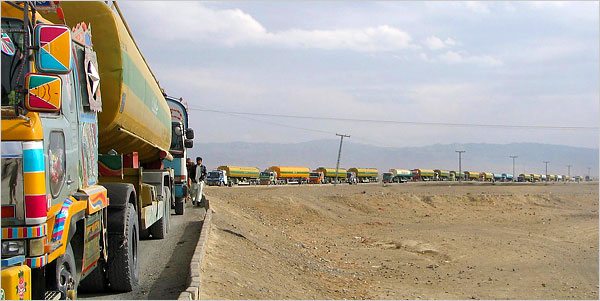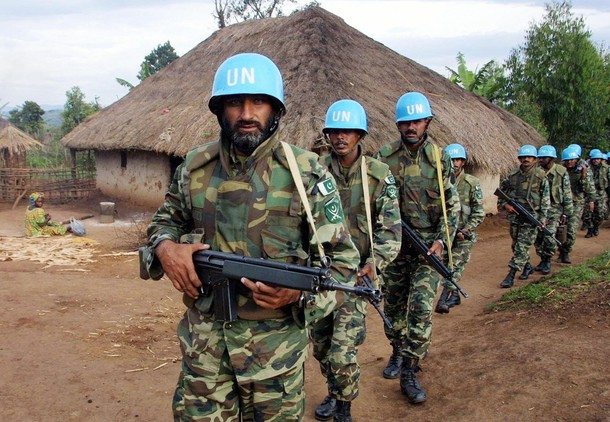Top Pakistani leaders will on Tuesday discuss ending a blockade of foreign military supply routes into Afghanistan and repairing US relations, signalling a rapprochement ahead of a NATO summit.
Islamabad shut its Afghan border to NATO supplies after US air strikes killed 24 soldiers in November, provoking a new crisis in relations on top of the outcry from the US raid that killed Osama bin Laden the previous May.
But Foreign Minister Hina Rabbani Khar said on Monday that it was time to “move on”, conceding a key demand from the West in time for Pakistan to attend the NATO summit in Chicago on Sunday and Monday.
Pakistan has called in vain for an end to US drone strikes targeting Taliban and Al-Qaeda militants on its soil, and a formal apology for the November killings.
But analysts say Pakistan has no choice but to reopen the border when US cash is needed to help boost its meagre state coffers, at a time when major NATO discussions are underway affecting its own strategic future.
“It was important to make a point, Pakistan has made a point and we now need to move on and go into a positive zone and try to conduct our relations,” Khar told a news conference.
“We are trying to put this relationship, you know, in a positive zone and I am quite sure that we will be successful in doing so,” she said.
The Pakistani cabinet’s defence committee, which groups senior civilian and military figures including the prime minister, army chief of staff and intelligence chief, will convene from 1430 GMT on Tuesday.
A meeting of the full cabinet is expected to follow on Wednesday, officials have said.
Pakistan’s involvement in the Chicago summit could boost the country’s leverage over the future of Afghanistan, as NATO countries pull out their combat forces by 2014 after a decade of increasingly unpopular war.
Asked whether Islamabad would allow a resumption of NATO supplies, Information Minister Qamar Zaman Kaira said on Monday that a decision would be made within days but refused to go into detail, citing “sensitivities”.
The US State Department said both countries had made “considerable progress” on ending the blockade, which has held up lengthy convoys of fuel and supply trucks all the way to the Pakistani port city of Karachi in the south.
Pakistani and US officials spent the weekend locked in talks in Islamabad on reaching an understanding to govern fees, logistics and other obligations should trucks again carry NATO supplies through Pakistan.
The supply line negotiating team arrived in the country with US special envoy Marc Grossman, who visited in April, and stayed on after he left, officials said.
“They are not yet finished with the Pakistanis,” State Department spokeswoman Victoria Nuland told reporters.
“But we’re having a full review with the government of Pakistan on how this transit system works and all of the issues are on the table in that context.”
Islamabad reiterated Monday that it would still like an apology for the November air strikes, with the foreign minister saying it was “on the table”.
The United States has expressed regret for the deaths, which an American and NATO investigation said stemmed from mistakes made on both sides during fighting on the Afghan border with Pakistan.
In a further sign that tensions are easing, Pakistan on Sunday hosted the most senior talks with NATO and the Afghan military in nearly a year, focused on improving border coordination.











